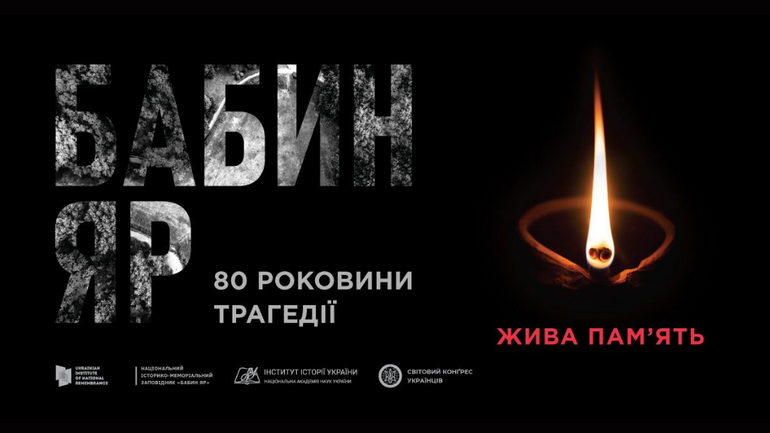UWC invites to join the commemoration of 80th anniversary in memory of the victims of Babyn Yar

Several commemorative events will take place at the National Historical and Memorial Reserve “Babyn Yar” in Kyiv. Senior state officials, heads of churches, representatives of Jewish, Orthodox and Catholic religious organizations, international organizations, and distinguished foreign guests will participate in these commemorative events. On September 29, the events will be live-streamed on UWC’s Facebook page.
The events will begin with the symbolic lighting of the memorial flame by senior state officials on September 29, at 10:00 at the Monument to Kyiv city Residents and Prisoners-of-war who were shot in Babyn Yar.
On September 29, at 20:30, the Interfaith Prayer Service for the victims of Babyn Yar will take place at the same location of the Monument. Everyone, regardless of religion, is invited to join us. The prayer service will be led by Chief Rabbi of Ukraine and Kyiv Moshe Reuven Asman, His Beatitude Metropolitan Epiphanius of Kyiv and All Ukraine, His Beatitude Sviatoslav, Patriarch and Head of the Ukrainian Greek Catholic Church. You can join this Prayer service in Kyiv or join the live stream on UWC FB.
From 10:00 a.m. to 7:00 p.m on both days of commemoration, everyone wishing to honour the victims’ memories is invited to come to Babyn Yar and place symbolic stones and lamps at various monuments and memorial sites around the Reserve. Directional signs will guide mourners to the locations where stones and lamps will be provided.
The commemorative events are being organized by the National Historical and Memorial Reserve “Babyn Yar”, the Institute of History of Ukraine of the National Academy of Sciences of Ukraine, the Ukrainian Institute of National Memory, with the support of the Ukrainian World Congress.
“Babyn Yar is a global tragedy and the international Ukrainian community joins Ukraine in its solemn commemoration, stated Paul Grod, UWC President. “Together, we must ensure the memory of Babyn Yar is kept alive and free from political manipulation. The Ukrainian state and citizenry must be supported in the memorialization of Babyn Yar today.”
“Kyiv Jews were killed only because the political ideology of the Nazi state recognized them as racially hostile and ‘sentenced’ them to death. Nowhere else, even in the sadly remembered death factories, have so many people been killed in such a short period of time. That is why Babyn Yar is one of the symbols of the Holocaust all over the world. With these memorial events, honoring the memory of the victims, we strive to return to them their dignity taken away by the criminal ideology. It is at the same time a contribution to the formation of a mature and worthy political nation, for which human rights would be a basic value, regardless of origin, social or status. After all, we strive to live in a community that does not accept violence as an argument, but on the contrary – cultivates a sense of responsibility, empathy, tolerance, interethnic and interfaith harmony. We hope that participation in these commemorative events will unite the society and involve as many people as possible, regardless of nationality, religion and views in the memorialization of Babyn Yar space,” Anton Drobovych, head of the Ukrainian Institute of National Memory said.
Historic reference
During World War II, Nazi German forces occupied Kyiv and used the Babyn Yar ravine in the northwestern part of the city as a site of mass execution of civilians, mainly Jews. On September 29, 1941, the city’s entire Jewish population was ordered to come to Babyn Yar where they were taken in groups through the checkpoint, taken to the edge of the ravine and shot. In two days, 33,771 people were killed in the massacre. The shootings in Babyn Yar continued until the German army left the city in 1943; according to official statistics, around 100,000 people were killed by the Nazis in Babyn Yar, whose occupation of Kyiv lasted more than two years in 1941-1943.









